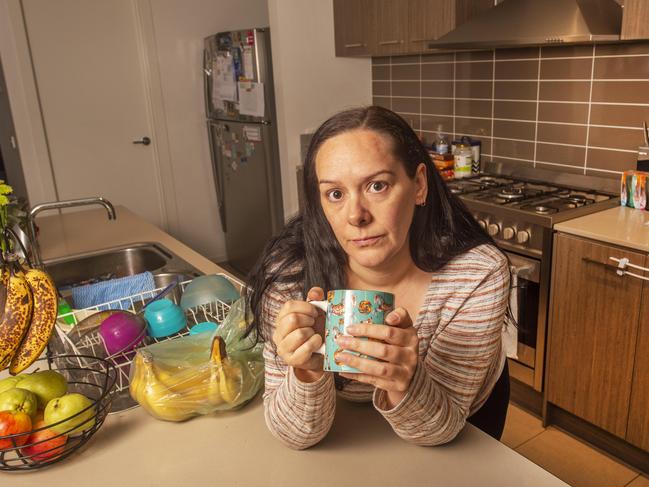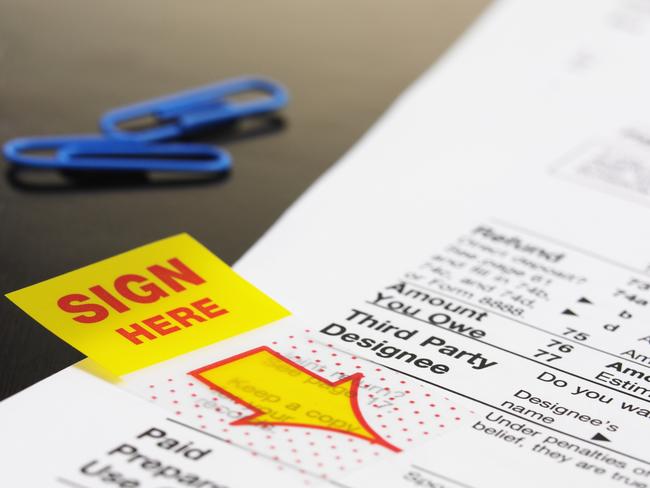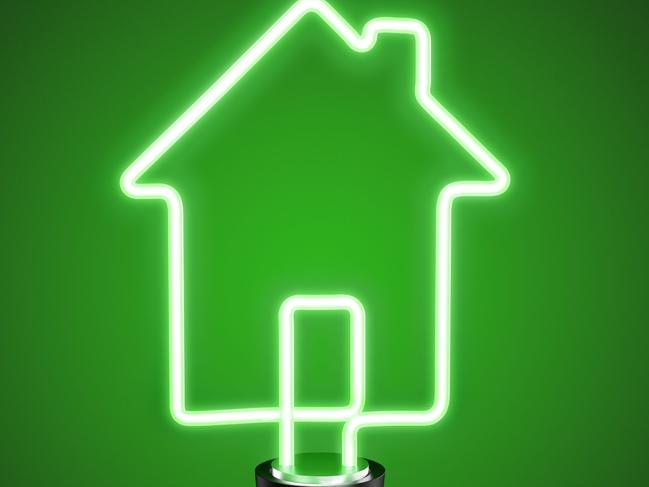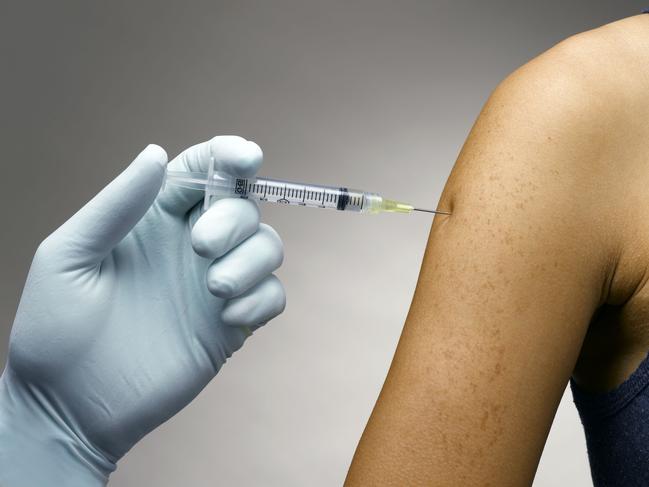New laws and changes that will affect Australia from July 1, 2020 and beyond
There are massive changes for millions of Australians that will affect how much they earn and what they can claim. But other items will go up in price.
Companies
Don't miss out on the headlines from Companies. Followed categories will be added to My News.
From July 1, there are a raft of changes coming to welfare, health and other living expenses. This is what’s coming and how it will affect Australian families.
MINIMUM WAGE
The Fair Work Commission announced a 1.75 per cent increase to minimum wages. This will apply to all award wages from July 1.
Increases to awards will start on 3 different dates for different groups of awards.
For anyone not covered by an award or an agreement, the new national minimum wage will be $753.80 per week or $19.84 per hour. This applies from the first full pay period starting on or after July 1.
SUPERANNUATION
*Super fund members can access up to $10,000 of their super account if they are financially affected by COVID-19.
Under the temporary access rules, applications must be made between July 1 and September 24 and are only available to members in accumulation phase, not retirement phase.
*Employers are being offered a one-off chance to disclose and pay any unpaid Super Guarantee amounts under an amnesty program run by the ATO.
The amnesty runs until September 7 and permits employers to lodge an SG amnesty form to disclose SG contribution shortfalls for their employees for any quarter from 1 July 1992 and 31 March 2018.
*Older super members will be able to make contributions into their super without having to meet the requirements of the work test.
Fund members aged 65 and 66 can make personal non-concessional contributions into their super account without being gainfully employed for 40 hours in 30 consecutive days during the financial year.
*The maximum age an SMSF member can receive a spouse contribution has been lifted to 75 (up from 69). Receiving spouses aged between 67 and 75 must still meet the requirements of the work test.
*There will be a reduction in the minimum drawdown rates which means some retirees could have their superannuation pension payments reduced by half from July 1.

BUSINESS AND TAX CHANGES
*Corporate tax rate for small and medium companies with turnover under $50 million will reduce to 26 per cent in the 2020-21 year, from the current 27.5 per cent. This rate will reduce further to 25 per cent in 2021-22.
*Foreign residents who own houses that they lived in while they were in Australia will no longer be able to claim the main residence Capital Gains Tax exemption when they subsequently sell.
*Single Touch Payroll starts for closely held businesses — these involve people who are directly related to an entity like a family member, directors or shareholder.
The ATO has extended the Single Touch Payroll (STP) reporting exemption until July 1 2021 for small not-for-profits (19 or fewer employees) to report ‘closely held payees’.
*For income years starting from July 1, large private companies have to lodge a reportable tax position (RTP) schedule.
This change is to ensure consistency across large companies and includes public, foreign owned and private ones.
*The $150,000 threshold for an immediate write-off for assets acquired by businesses with an aggregated turnover of less than $500 million has been extended and reverts back to $1,000 for small businesses with an aggregated turnover of less than $10 million on January 1, 2021.

JOBKEEPER & JOBSEEKER
Treasury has reviewed both JobSeeker and the JobKeeper wage subsidy, but the findings won’t be released until July 23 when Treasurer Josh Frydenberg delivers a much-anticipated economic statement.
The JobSeeker payment, formerly known as Newstart, was doubled to around $1100 a fortnight as a support measure during the pandemic.
Under the JobKeeper payment, businesses impacted by COVID-19 access a subsidy to continue paying their employees.
The Government provides a fortnightly payment of $1500 per eligible employee until September 27.
FAMILY COURT
The fees payable in the Family Court and Federal Circuit Court are changing from July 1.
An application for divorce will rise from $910 to $930 in the Federal Circuit Court. Across the Family Court and the FCC, a conciliation conference will rise from $400 to $410.
See the full list.
ENERGY PRICES
Energy prices are changing as of July 1 in ACT, NSW, QLD & SA.
A new default market offer (DMO) will also be introduced.
It is a reference price for what electricity retailers can charge a range of customers in an electricity distribution zone.
Compare prices where you live via Canstar’s website calculator.

PAID PARENTAL LEAVE
From July 1, Parental Leave Pay will be available as either a Paid Parental Leave period of up to 12 weeks which is 60 payable days, or a 30-day Flexible Paid Parental Leave offering.
Workers can choose how and when they would like to get Parental Leave Pay from September 14 2020.
They can also link up to 30 of their Flexible Paid Parental Leave days to their 12 week Paid Parental Leave period, extending their continuous period to a maximum of 18 weeks.

IMMUNISATION
Under the government’s National Immunisation Program (NIP), there will be changes to improve protection against meningococcal and pneumococcal disease.
*The meningococcal B vaccine (Bexsero®) will be added to the NIP for Aboriginal and Torres Strait Islander infants at 2, 4, and 12 months of age. An additional dose at 6 month of age is required for Aboriginal and Torres Strait Islander infants with specified medical risk conditions.
The vaccine will be supported by a catch-up program for all Aboriginal and Torres Strait Islander children aged under 2 years until June 30 2023.
*Meningococcal B and meningococcal ACWY vaccines will also be funded under the NIP for people of all ages with specified medical risk conditions.
*Pneumococcal vaccination dosage and timing have been updated for adults and people with conditions that increase their risk of disease.
*Australians over 70 and indigenous Australians over 50 may get a free pneumococcal vaccine.
CHILDCARE
Federal Education Minister Dan Tehan has announced the targeted free childcare scheme introduced in April due to the COVID-19 pandemic will come to an end on July 12, with a return to child care subsidy program on July 13.
He said providers were “on the brink of collapse” when the initial announcement was made but that immediate threat how since passed.
The JobKeeper payment for childcare workers will be stopped on July 20.

CARERS
From July 3, the government will pay eligible carers the Carer Supplement. Carers may also get the Child Disability Assistance Payment.
Those getting an eligible payment on July 1 will get a Carer Supplement of up to $600 for each eligible person in your care, or a Child Disability Assistance Payment of up to $1,000 for each eligible child under 16 in your care.
THE AUSSIE WORKPLACE
*In Queensland, self-insured employers will be required to report injuries and any payments made to workers to their insurer.
Workers’ compensation coverage will also be extended to unpaid interns.
Employers will need to provide the details of their rehabilitation and return to work plan to their insurer.
*In Victoria, new workplace manslaughter offences will carry tougher penalties for negligently causing a fatality in the workplace.
Fines of up to $16.5 million for duty holders and up to 20 years in jail for individuals will apply.
CHANGES TO FINES
*In WA, anyone caught texting, emailing, using social media, watching videos or accessing the internet while driving will cop a $1,000 fine and four demerit points.
The new penalty is more than double the current $400 fine and means WA drivers will face the equal-harshest penalty in Australia for the offence, like Queenslanders.
*In NSW anyone on government benefit payments could apply to have fines discounted.
The discount applies to anyone on Centrelink, including those on JobKeeper or Jobseeker who have received a fine managed by Revenue NSW.
SPORT
*NRL and AFL spectators trying to enter NSW stadiums from July 1 are likely to be required to show their driver’s licence to prove they’re not from Victoria.
*In NSW, adult community sport will recommence on the same day as 18 years and under.
Originally published as New laws and changes that will affect Australia from July 1, 2020 and beyond


